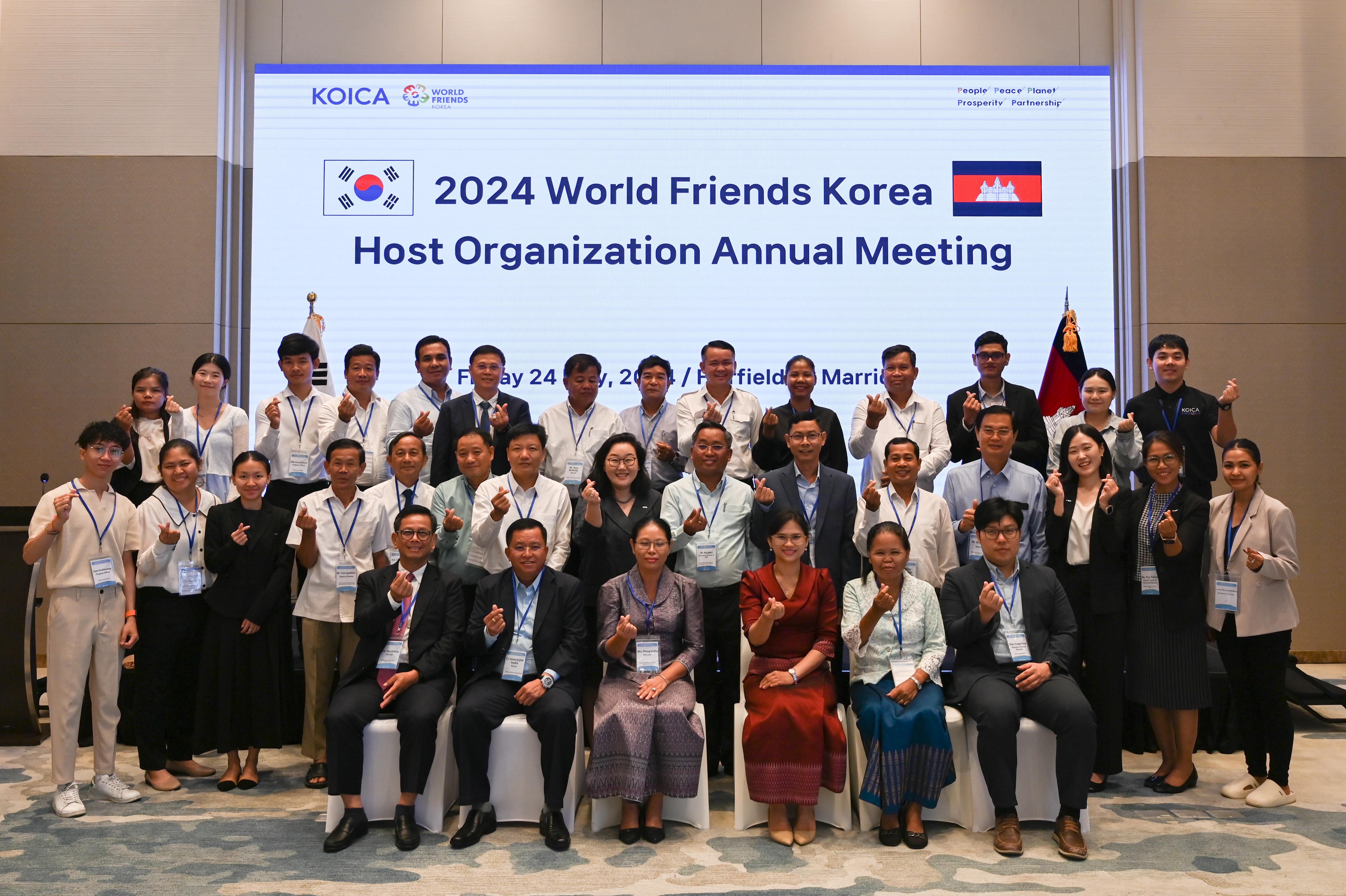Phnom Penh (FN), May 27 – On 24 May, the Korea International Cooperation Agency (KOICA) Cambodia office organized the 2024 Host Organization Annual Meeting of World Friends Korea (WFK) program, the volunteer program of the Korean government.
Attended by H.E. Mrs. Phana Veunida, Deputy Secretary General of Cambodian Development and Cooperation Board of Council for the Development of Cambodia (CDCB/CDC), Ms. Choi-Moon Jung, Country Director of the KOICA Cambodia and its partners from around 21 governmental organizations, this annual conference aims to introduce the volunteer program and discuss including safety and security, volunteer regulation, small scale project support, and the competency of volunteer.
Since the establishment of the diplomatic agreement of dispatching volunteers between the Republic of Korea and Cambodia in 2001, WFK KOICA volunteers have played a pivotal role as catalysts of mutual understanding and shared progress. The first cohort of five volunteers arrived in Cambodia in 2003 – one in physical education, one in tourism, and three in computer education. Since then, the WFK volunteer program has expanded to encompass nearly 960 volunteers, with 26 currently serving in diverse fields such as Korean language education, early childhood education, computer education, and nursing in the health sector.
In this regard, to enhance the performance of volunteers’ work and to provide a platform where communication and exchange of ideas for this program between KOICA and Partner government organizations, the KOICA Cambodia office has regularly held an annual conference for WFK volunteer host organizations.
In today's conference, KOICA selected and awarded the best partner organizations of the WFK program. Two partner organizations, the Kampong Thom Provincial Office of Education, Youth, and Sport (POE), and the National Technical Training Institute (NTTI), have been recognized as the best partner organizations. They were chosen based on their excellent communication and collaboration, relevant training services provided to volunteers, good care for volunteers, and their efforts in providing feedback, making improvements, and supporting the sustainability of volunteer-led on-site projects.
Moreover, in this meeting, partner organizations were strongly motivated and actively engaged in discussions and idea exchange. Ms. Choi-Moon Jung, Country Director of the KOICA Cambodia Office, expressed appreciation to all participants from government organizations who contributed and shared many insights for program improvement. The KOICA country director added, "Moving forward, we remain committed to enhancing the quality and scale of our volunteer dispatch program. We will continue to promote project-multiyear volunteer teams, performance-driven initiatives, and a gradual restoration of pre-COVID-19 dispatch levels. Additionally, effective communication between the KOICA host organization and the volunteers is crucial for resolving issues. KOICA will carefully listen and actively consider all inputs and challenges to improve program implementation in Cambodia more effectively."
H.E. Mrs. Phana Veunida, Deputy Secretary General, the Cambodia Development Cooperation Board of the Council for the Development of Cambodia (CDC), emphasizes that the “strategy partnership” between Cambodia and Korea underscores our commitment to further strengthen cooperation and partnerships between our nations. H.E. added that the dispatching of Korean volunteers to Cambodia in response to the requests from ministries/institutions for human resource and skill training which are in line with the First Pentagon of the Pentagonal Strategy: Phase 1. The WFK volunteers are the driving forces to help strengthen the capacity of officials in health, education, public administration, and agriculture and to disseminate their experiences and knowledge to ensure the quality and effective implementation of their programs.
Furthermore, the Korean Volunteer Program has played an essential role in strengthening cooperation and partnership between the two countries, primarily through the promotion of socio-cultural exchanges, people-to-people exchanges, and development of human capital at the national and sub-national levels, as well as providing capacity, knowledge and professional skills training to people in rural areas aimed to match their the requirements of institutions and the labor market.
=FRESH NEWS
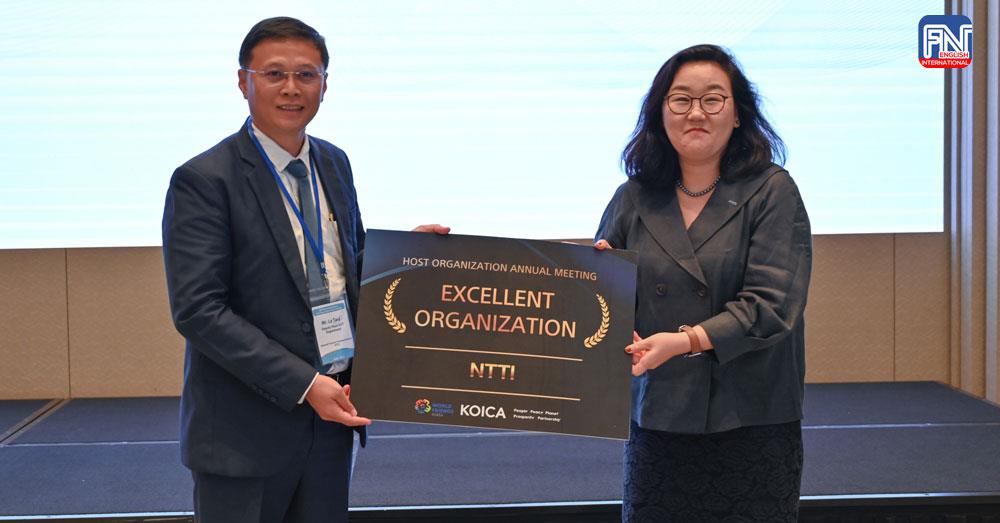
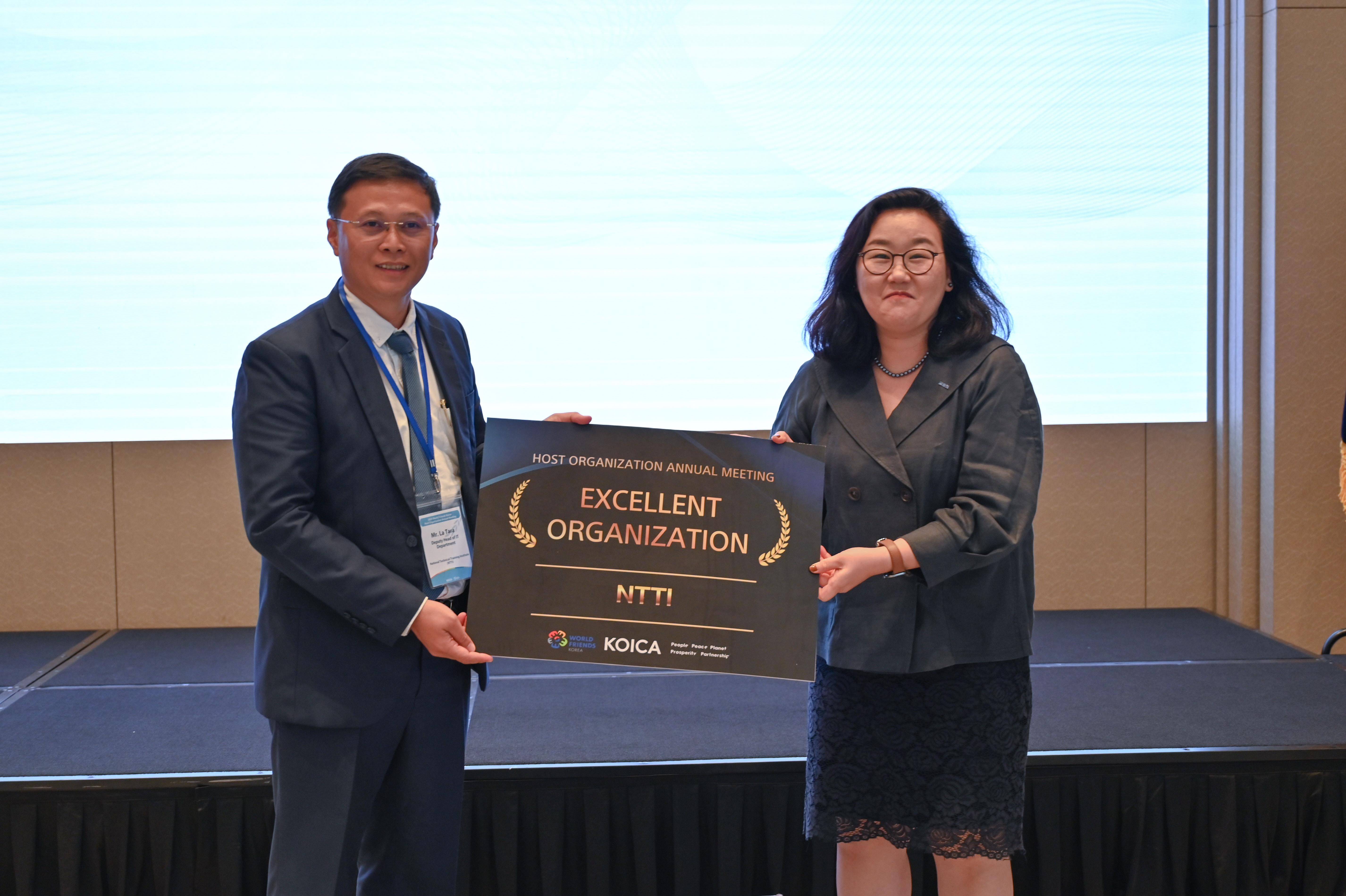
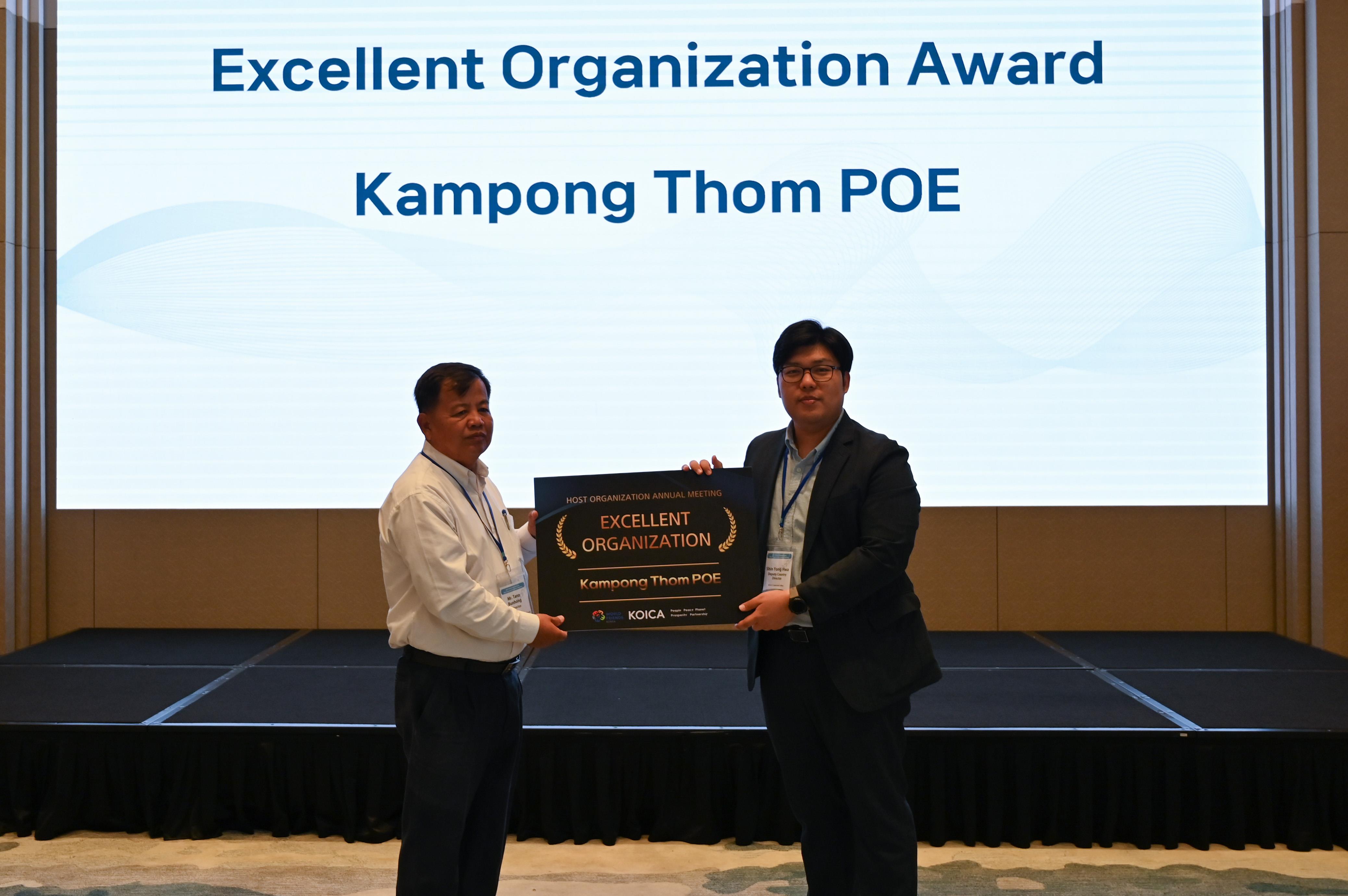
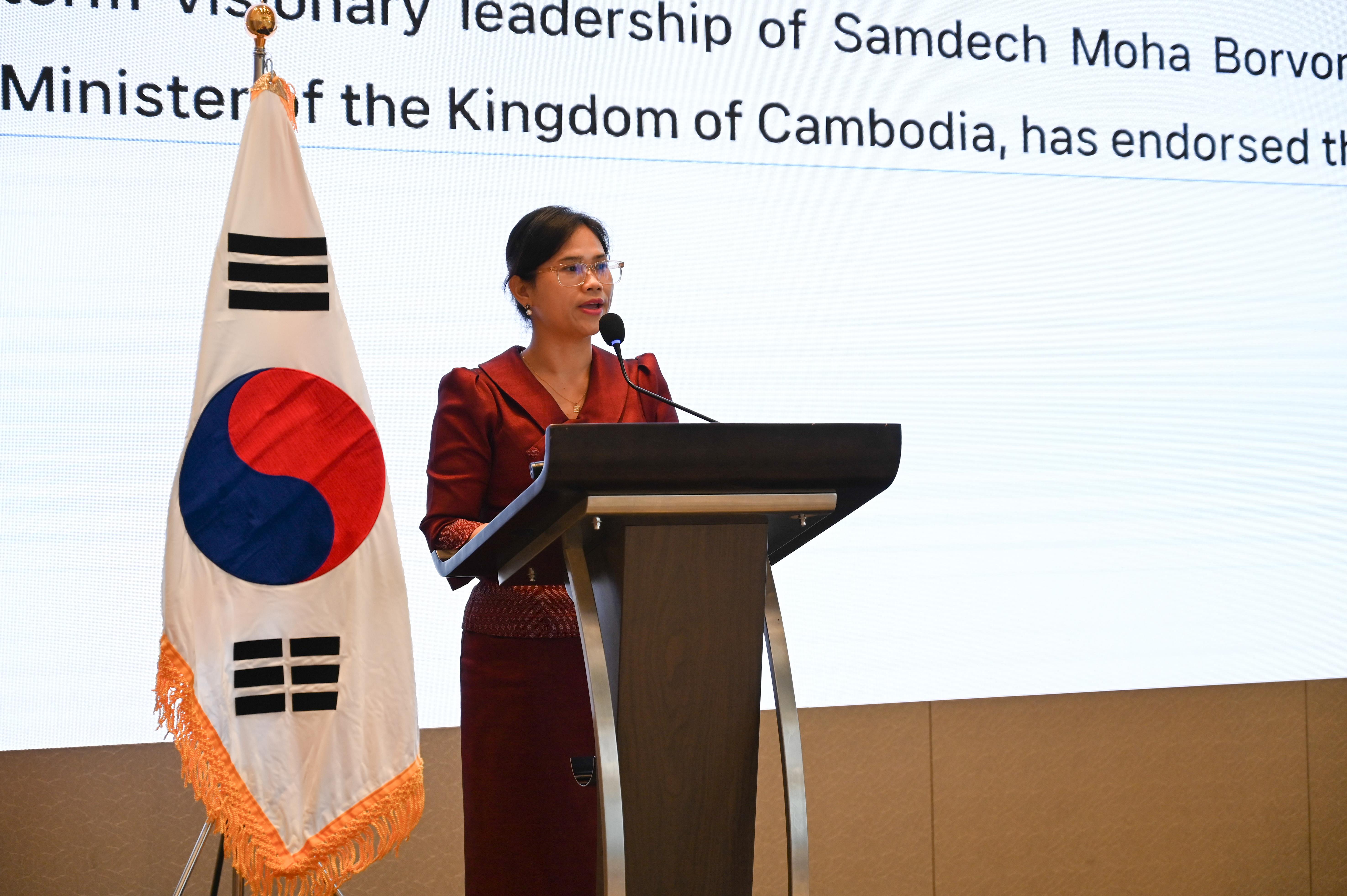
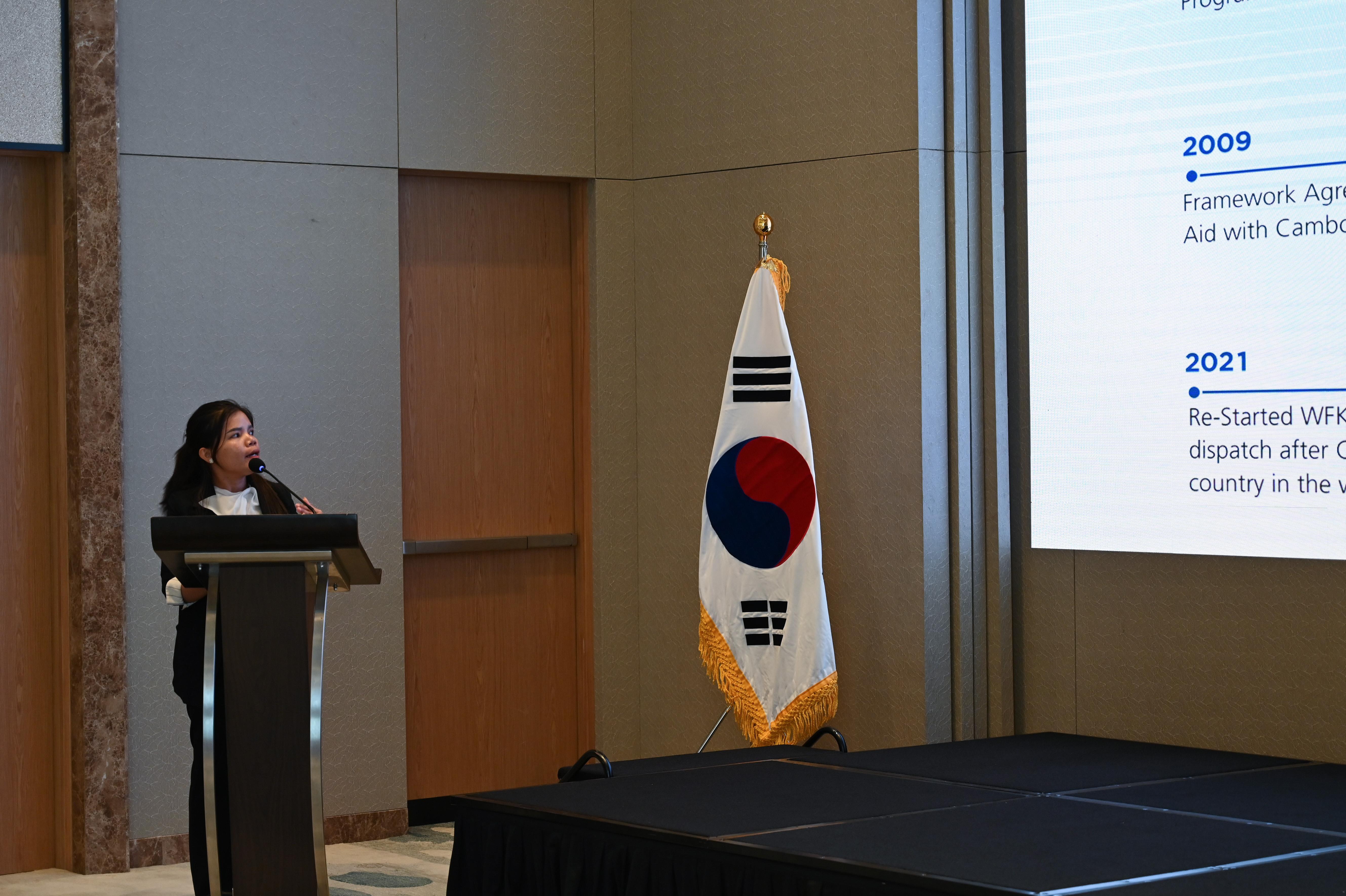
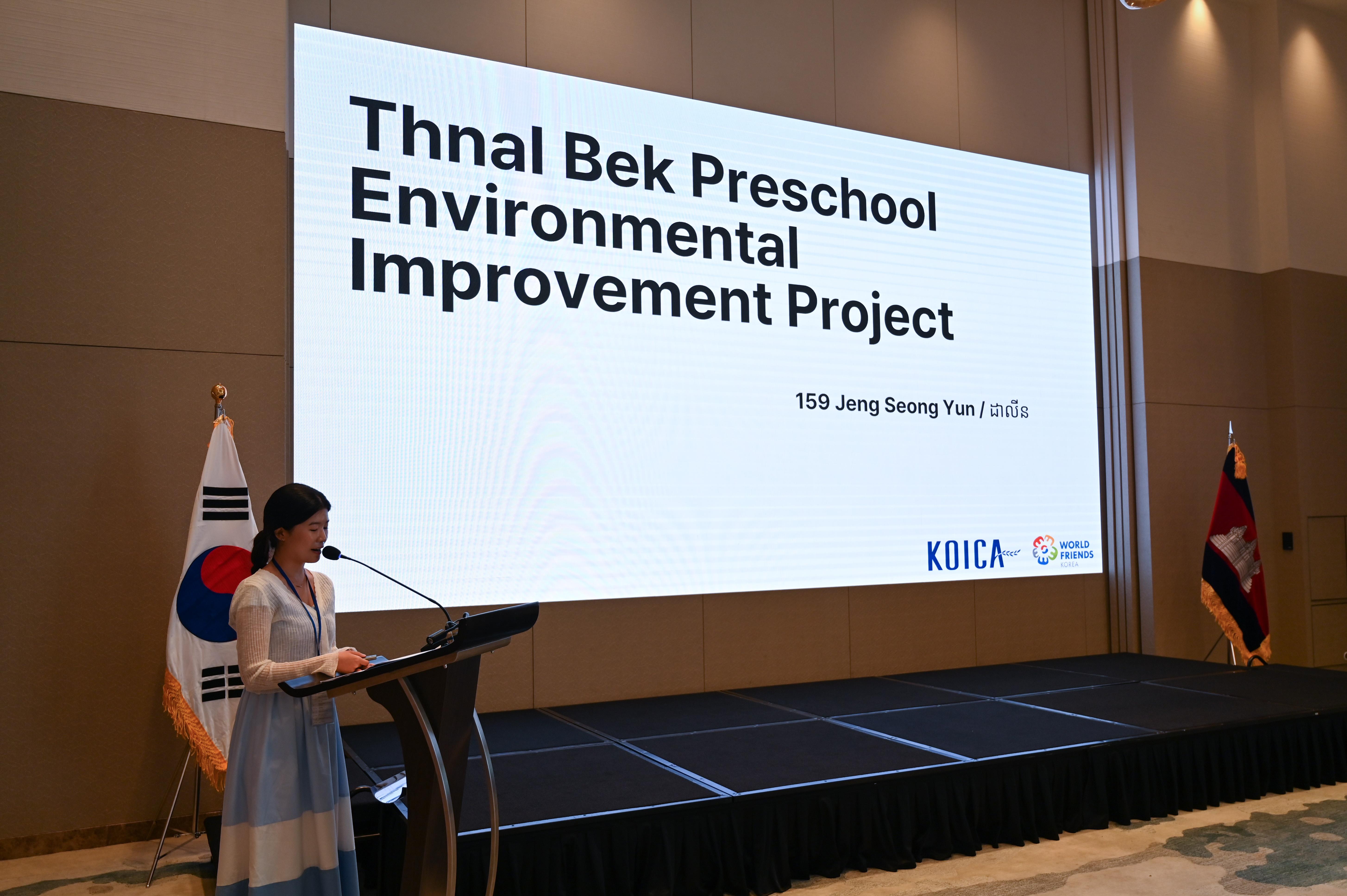
http://image.freshnewsasia.com/2021/id-132/fn-2024-05-27-14-55-56-0.JPG http://image.freshnewsasia.com/2021/id-132/fn-2024-05-27-14-55-57-1.JPG http://image.freshnewsasia.com/2021/id-132/fn-2024-05-27-14-55-59-2.JPG http://image.freshnewsasia.com/2021/id-132/fn-2024-05-27-14-56-00-3.JPG http://image.freshnewsasia.com/2021/id-132/fn-2024-05-27-14-56-02-4.JPG
